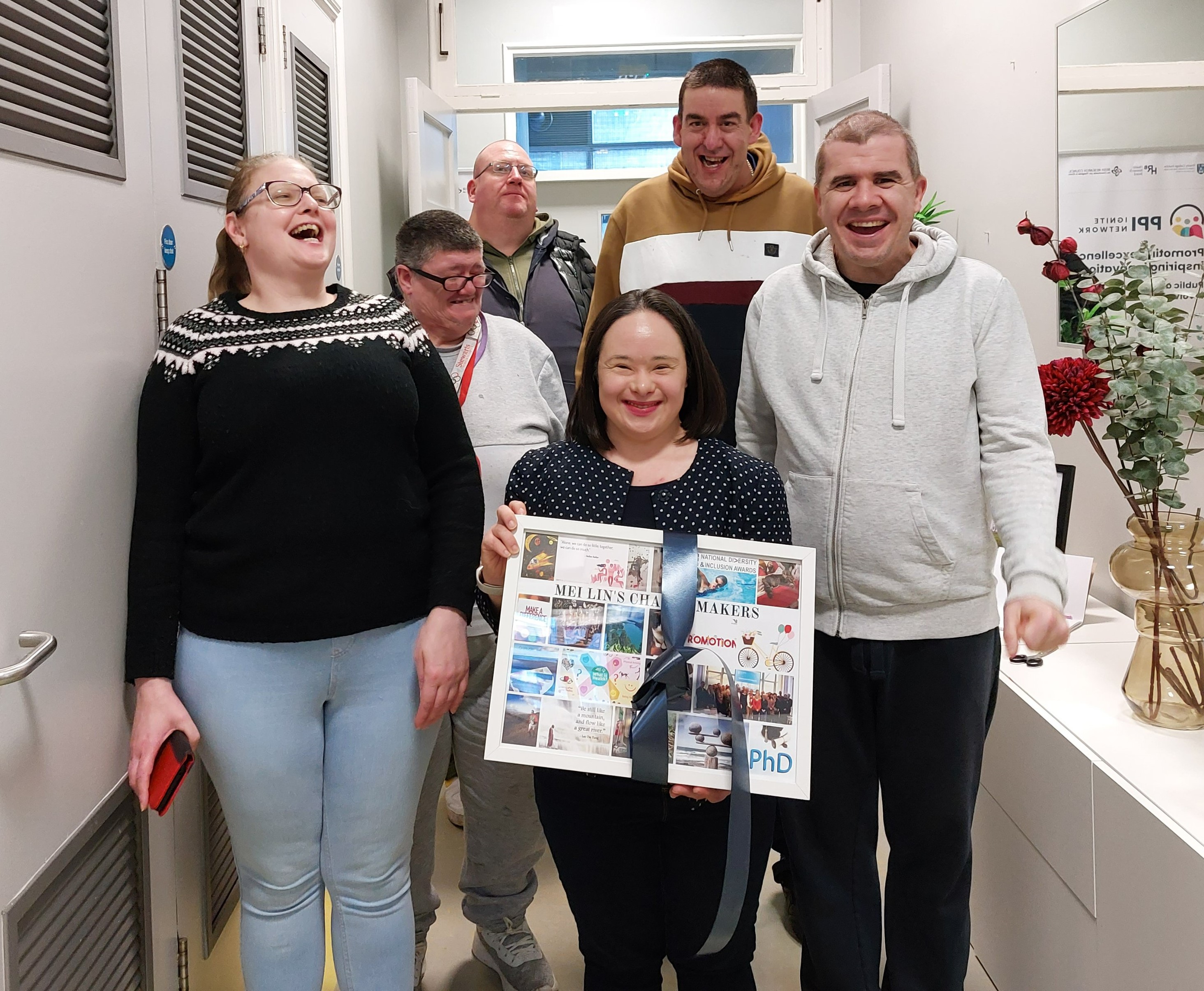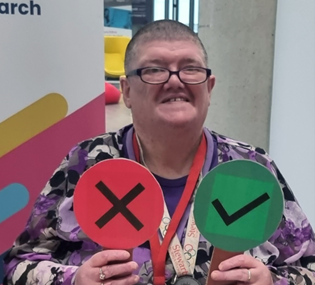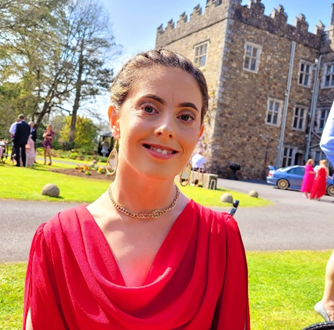EQUIP PPI Contribution: PPI Panel, Steering Committee, and EQUIP Task Group
Throughout the EQUIP project it was very important to us that we had PPI contribution.
PPI contribution is when research is done ‘with’ a group of people, rather than just ‘about’ them.
In the EQUIP project, this meant that people with intellectual disabilities were involved in our research from start to finish, in lots of different ways.
We have different groups that help with our research and in each of these groups, there are people with intellectual disabilities.
EQUIP PPI Panel

7 people with intellectual disabilities make up our PPI panel at TCAID. They are a group of people with intellectual disabilities who we can go to when we have questions during our project.
They help us make big decisions about our research, and make sure our research the is best it can be for people with intellectual disabilities.
They have helped make lots of decisions about how we will share the findings from our project and tell us what information from the project they find most interesting and important.
EQUIP Steering Committee
We also have people with intellectual disabilities on our steering committee.
They help to guide the project by giving their opinion and helping us to decide what to do next, at every step of the project.
EQUIP Task Group
There are also members of our task group with intellectual disabilities. The task group is made up of people from these groups- National Disability Operations, Psychology, SLT, Nursing, Psychiatry, Disability Federation Ireland, and Down Syndrome Ireland.
Our task group helps us to know how to use our findings to have the biggest impact on the lives of those with intellectual disabilities.
They help to guide us on sharing our findings and use them to try and make changes at to policy.
The Importance of PPI in EQUIP
Sometimes our PPI members share their experience with taking medicines which helps us understand how our research will affect people with intellectual disabilities.
By sharing these experiences, our PPI contributors give us very important information that we could not learn from anyone else.
This shows us how important PPI voices are in our research.
EQUIP is very grateful for the work of its PPI members.
Their contributions to the project have been extremely valuable to our project.
Some highlights of the work done by our PPI members include:
• Helping to design and make our video on findings from EQUIP. All the people who were in the video or did a voice over were also our PPI members. The video is called ‘Psychotropic medicines for your mental health and the people who take them’ You can watch the video here: EQUIP Video
• Making easy read documents on information about psychotropic medicines and results from the EQUIP study. They made sure the language was accessible, the document was easy to follow and the picture was useful. You can find our easy read documents here: EQUIP Easy read
• Giving us feedback on presentations and telling us what we should change to make them better.
• Telling us the results that they found interesting or important.
• Sharing their own experiences to help us understand how medicines effect people with intellectual disabilities.
• Helping to apply for support to hold events, giving us advice on planning events to make them better for people with intellectual disabilities, making sure the information is useful and that everybody can participate in the activities. You can read about our medicines event for people with intellectual disability here:Let's Chat about Medicines
• Advising us to make a listening version of our easy read documents. You can find these here: EQUIP Easy read
Two of the members of our Steering Committee are Shannon O'Farrell-Molloy and Lorraine Keating.They are going to tell us about their experience working with EQUIP.
Here is what Lorraine said:

"I’m an EQUIP Steering Committee Member and independent advocate. I have the chance to make sure the study knows what it is like to take a lot of tablets and its’s important for people to know side effects, to know the correct dosage and have accessible support to know what medications to take."
Here is what Shannon said:

"My name is Shannon O'Farrell-Molloy I am 26 years old. I have Cerebral palsy, Epilepsy, and a mild learning disability. I live in the Sunny South-East. I attend Cumas, New Ross which is a day service and I also work in a leisure centre in New Ross known as the Apex. Being disabled is like being on a remarkable journey you meet so many incredible people on the way. I have loved working on the EQUIP Project.
I strongly encourage people with disabilities, brain injury, strokes, etc to take control of their health. If your condition requires Medication do your research or speak with your doctor. Every medication has massive benefits but it also has side effects. I once had a bad experience with medication and its side-effect so now I do my research before starting any new Medications. I look at the side effects and how they might affect my body or how they may impact the way I may feel so when I start a medication, I am aware of these possible side effects. Everyone's body responds differently to Medications.
At age 25 Trinity College showed me and my mum this cool Machine to test your bones they then explained the importance of bone health. I went home and booked a Dexa scan. I in my 20s never thought of worrying about bone health but with my disabilities, I know now it’s something I need to keep an eye on.
Be proactive with your health.
I really enjoyed the project, meetings, chats, tea, laughter, and friendships"
We are really thankful to all our PPI members for their work on the EQUIP project. They have all worked really hard.


